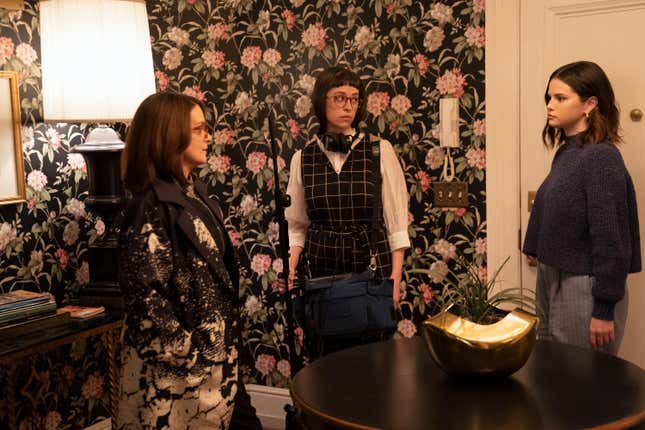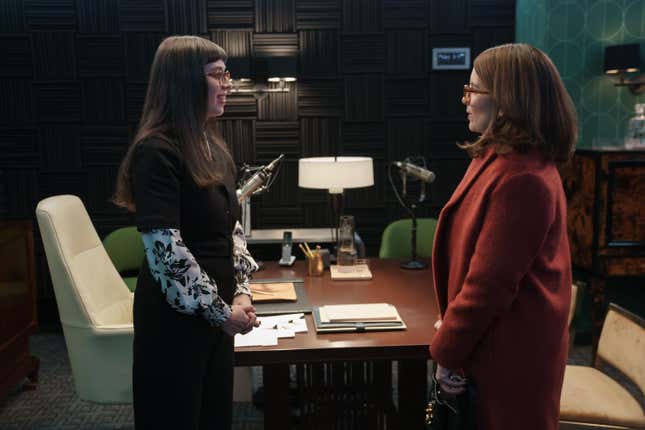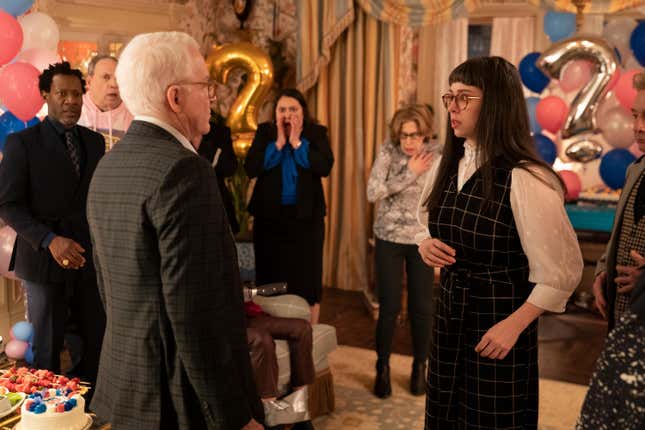The ‘Only Murders’ Murderer Exploited an Industry Built on Exploitation
This season's murderer has been revealed, and they talked to Jezebel about twists, season 3, and misogyny in true crime.
EntertainmentTV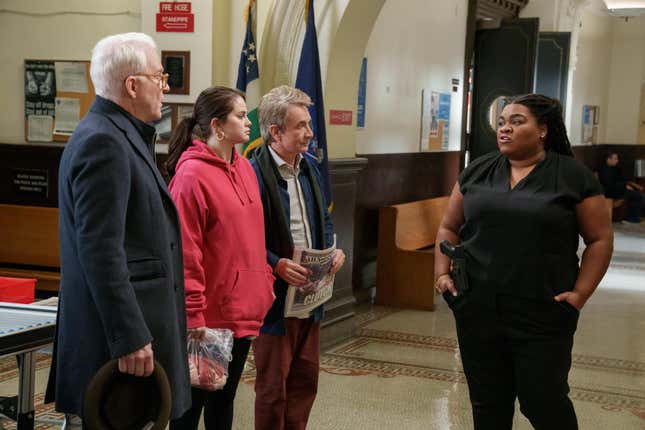

Editor’s note: This post is full of spoilers for season 2 of “Only Murders In The Building.”
All summer, Reddit has been brimming with theories about the identity of Only Murders in the Building’s season 2 killer, and the quality of the theories has ranged from utterly wacky to surgically astute. Last month, one post in particular stood out to me, juxtaposing the killer’s masked face—everything concealed but eyes and lips—with that of Poppy White (Adina Verson), the somber, exploited assistant to neurotic true crime podcast icon Cinda Canning,(Tina Fey). Prior to the last two episodes of this season, Poppy has occupied a tertiary role throughout the show, prompting me to audibly chortle at the post suggesting she was somehow this season’s killer. Well, reader, I was wrong—the Reddit user was right.
For two seasons, Only Murders has followed Mabel, Charles, and Oliver ( Selena Gomez, Steve Martin, and Martin Short, respectively) who have now solved two murders in their New York City building and have podcasted about their sleuthing in real time. After solving one neighbor’s murder last season, they’re framed for the murder of building president Bunny Folger. On Tuesday, the season finale reveals Poppy as Bunny’s killer, and Poppy is actually Becky Butler—the supposedly deceased “victim” at the heart of Cinda’s popular podcast that first united the main characters in season 1. We learn that when Cinda struggled to find material for a new podcast, Poppy took matters into her own hands, killing Bunny, planting evidence to frame the trio, and helping Cinda launch Only Murder-ers in the Building to make the case against them.
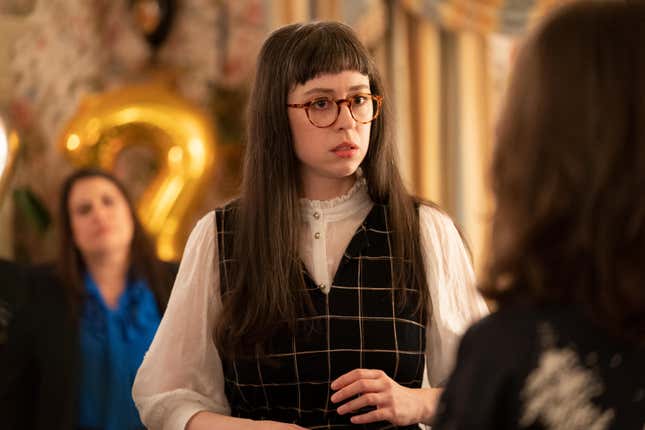
In a phone interview with Jezebel shortly before the finale aired, Verson said she learned she was this season’s killer shortly before they began filming. “My jaw was on the floor,” she recalled. On the first day on set, Verson realized that “nobody else knew” she was the killer. “It was a fun sort of secret to hold that felt parallel to Poppy living a double life.”
-

-

-

-

-

-

-

-

-

-

-

-

-

-

-

-

-

-

-

-

-

-

-

-

-

-

-

-

-

-

-

-

-

-

-

-

-

-

-

-

